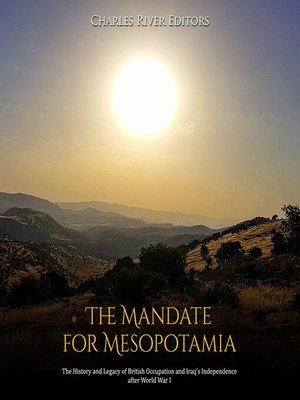The Mandate for Mesopotamia
audiobook (Unabridged) ∣ The History and Legacy of British Occupation and Iraq's Independence after World War I
By Charles River Editors

Sign up to save your library
With an OverDrive account, you can save your favorite libraries for at-a-glance information about availability. Find out more about OverDrive accounts.
Find this title in Libby, the library reading app by OverDrive.



Search for a digital library with this title
Title found at these libraries:
| Loading... |
Although the League of Nations was short-lived and clearly failed in its primary mission, it did essentially spawn the United Nations at the end of World War II, and many of the UN's structures and organizations came straight from its predecessor, with the concepts of an International Court and a General Assembly coming straight from the League. More importantly, the failures of the League ensured that the UN was given stronger authority and enforcement mechanisms, most notably through the latter's Security Council, and while the League dissolved after a generation, the UN has survived for over 70 years.
One of the League's most lasting legacies was the manner in which it handed over administrative control of land in the Middle East to the victorious Allied Powers, namely France and Britain. The Ottoman Empire quickly collapsed after World War I, and its extensive lands were divvied up between the French and British. While the French gained control of the Levant, which would later become modern day nations like Syria and Lebanon, the British were given mandates for Mesopotamia and Palestine. The British Mandate for Palestine gave the British control over the lands that have since become Jordan, Israel, the West Bank, and the Gaza Strip, while Mesopotamia covered modern Iraq.
The British, like so many others since, failed to grasp the full complexity of Arab sectarianism and the cross-currents of internal politics, and with a policy premised on their own broad strategic interests, they simply laid the groundwork of future political catastrophe for Iraq and the Middle East in general. Thus, while the intention of the mandate system was to have the administrators peacefully and gradually usher in independent states, and both European powers eventually attempted to withdraw from the region, anyone with passing knowledge of the Middle East's history in the 20th century knows that the region has seen little peace.






